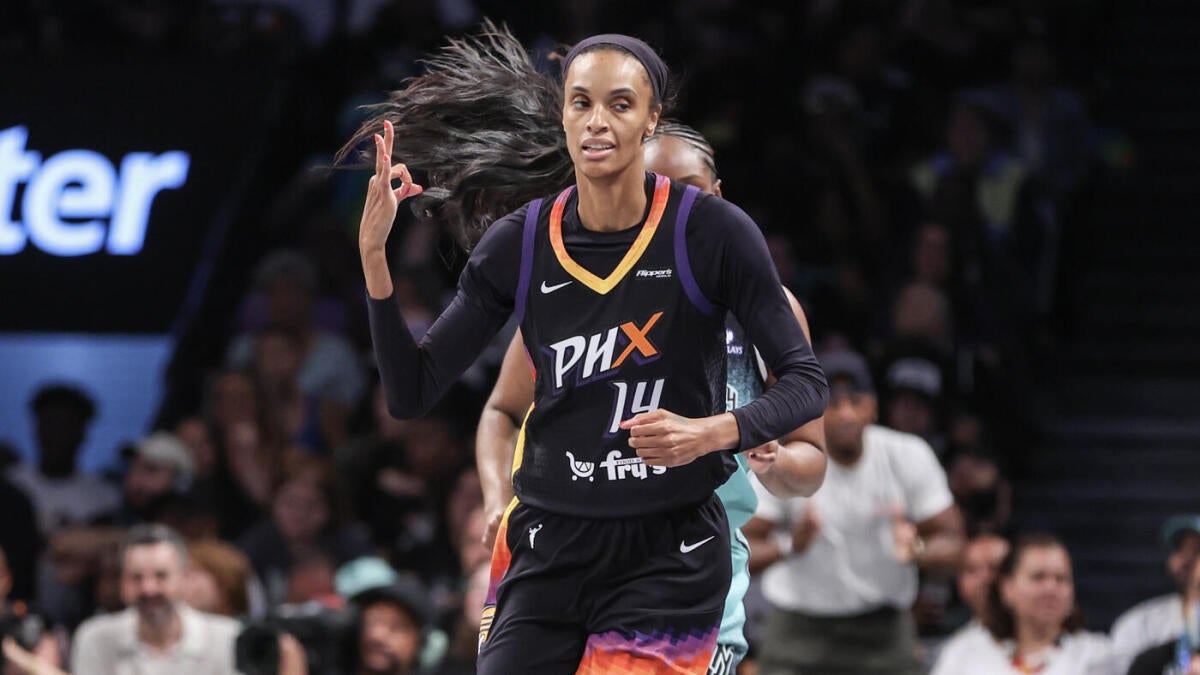The Intricate Tale of DeWanna Bonner: A WNBA Odyssey of Resilience and Reflection
A Sudden Shift: The Indiana Fever Experiment
DeWanna Bonner’s brief tenure with the Indiana Fever was a whirlwind of expectations and disappointments. The Fever, eager to bolster their roster, acquired a six-time All-Star known for her scoring prowess and leadership. However, the union quickly unraveled. Bonner, accustomed to being a cornerstone player, found herself in a diminished role, struggling to adapt to the team’s system and chemistry. The rapid decline in her performance and playing time suggested a fundamental mismatch between her strengths and the Fever’s strategy.
The abruptness of her departure left many questions unanswered. Was it a coaching decision, a team culture clash, or a strategic realignment? The Fever’s decision to waive Bonner was a clear indication that the experiment had failed. Despite her professionalism in thanking the organization, the underlying tensions remained unresolved, leaving fans and analysts speculating about the true reasons behind the split.
The Comfort of Familiarity: Returning to Phoenix
Bonner’s swift return to the Phoenix Mercury was met with relief and excitement. The Mercury, a team she had spent a decade with, offered a familiar and supportive environment where she could thrive. The contrast between her experiences in Indiana and Phoenix was stark. In Phoenix, Bonner was welcomed as a veteran leader, a proven scorer, and a player deeply embedded in the team’s history. This sense of belonging and familiarity undoubtedly contributed to her renewed confidence and improved performance.
The seamless transition back to the Mercury raises important questions about fit and compatibility. Was Bonner simply a poor match for the Fever’s system and culture, or were there other underlying factors that contributed to her struggles? The Mercury’s ability to integrate Bonner back into their roster highlights the importance of creating an environment where players can feel valued and contribute meaningfully.
“No Regrets”: A Philosophy Under Examination
Throughout this ordeal, DeWanna Bonner has maintained a steadfast stance: she has “no regrets.” She views her journey, with all its twists and turns, as an integral part of her career. This unwavering positivity is admirable, but it has also drawn scrutiny. Some critics argue that her mantra overlooks the potential impact of her actions on the Fever organization. The team invested in her, and her departure undoubtedly disrupted their plans and potentially hampered their progress.
However, Bonner’s supporters argue that her stance reflects a deep understanding of the unpredictable nature of professional sports. Players are constantly faced with difficult decisions, and sometimes those decisions don’t work out as planned. In Bonner’s view, dwelling on the past is unproductive. Instead, she chooses to focus on the present and embrace the opportunities that lie ahead. This perspective underscores the importance of resilience and adaptability in the face of adversity.
The Broader Implications: Player Agency and Team Dynamics
DeWanna Bonner’s saga extends beyond her individual experience. It raises important questions about player agency and team dynamics in the WNBA. Players are increasingly asserting their right to control their own careers, seeking out environments where they can thrive and contribute to their fullest potential. Bonner’s decision to leave Indiana, while controversial, underscores this growing trend.
However, this increased player agency also comes with responsibilities. Players must carefully consider the potential impact of their decisions on their teams and the broader league. Teams, in turn, must create supportive and inclusive environments that attract and retain top talent. The Bonner situation serves as a reminder that successful team dynamics are built on mutual respect, clear communication, and a shared commitment to success.
A Win-Win (Except for Indiana?)
Looking at the situation objectively, one might argue that Bonner’s move ultimately benefited both her and the Phoenix Mercury. Bonner is back in a familiar environment, playing at a high level and contributing to a team that values her experience and leadership. The Mercury, in turn, have regained a key player who can help them contend for a championship. The Indiana Fever, however, are left to pick up the pieces and rebuild after a significant roster disruption.
This highlights the inherent risks involved in free agency and player movement. Teams take gambles on players, hoping to find the right fit. Sometimes those gambles pay off, and sometimes they don’t. In the case of DeWanna Bonner and the Indiana Fever, the gamble ultimately failed. The situation serves as a cautionary tale for teams about the importance of thorough evaluation and strategic planning when acquiring new players.
Conclusion: A Journey Still in Progress
DeWanna Bonner’s journey is far from over. Her return to the Phoenix Mercury marks a new chapter in her illustrious career. Whether her “no regrets” mantra is a reflection of genuine contentment or a carefully crafted facade remains a matter of debate. Regardless, her story serves as a compelling case study in the complexities of professional sports, highlighting the importance of player agency, team dynamics, and the ever-present pursuit of finding the perfect fit.
One thing is certain: DeWanna Bonner’s impact on the WNBA, both on and off the court, will continue to be felt for years to come. Her resilience and adaptability in the face of adversity are qualities that inspire not only her teammates but also the broader basketball community. As she continues to write her story, Bonner’s legacy will undoubtedly be one of perseverance, leadership, and an unwavering commitment to excellence.











